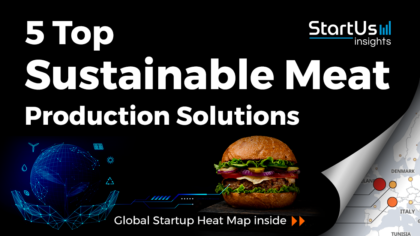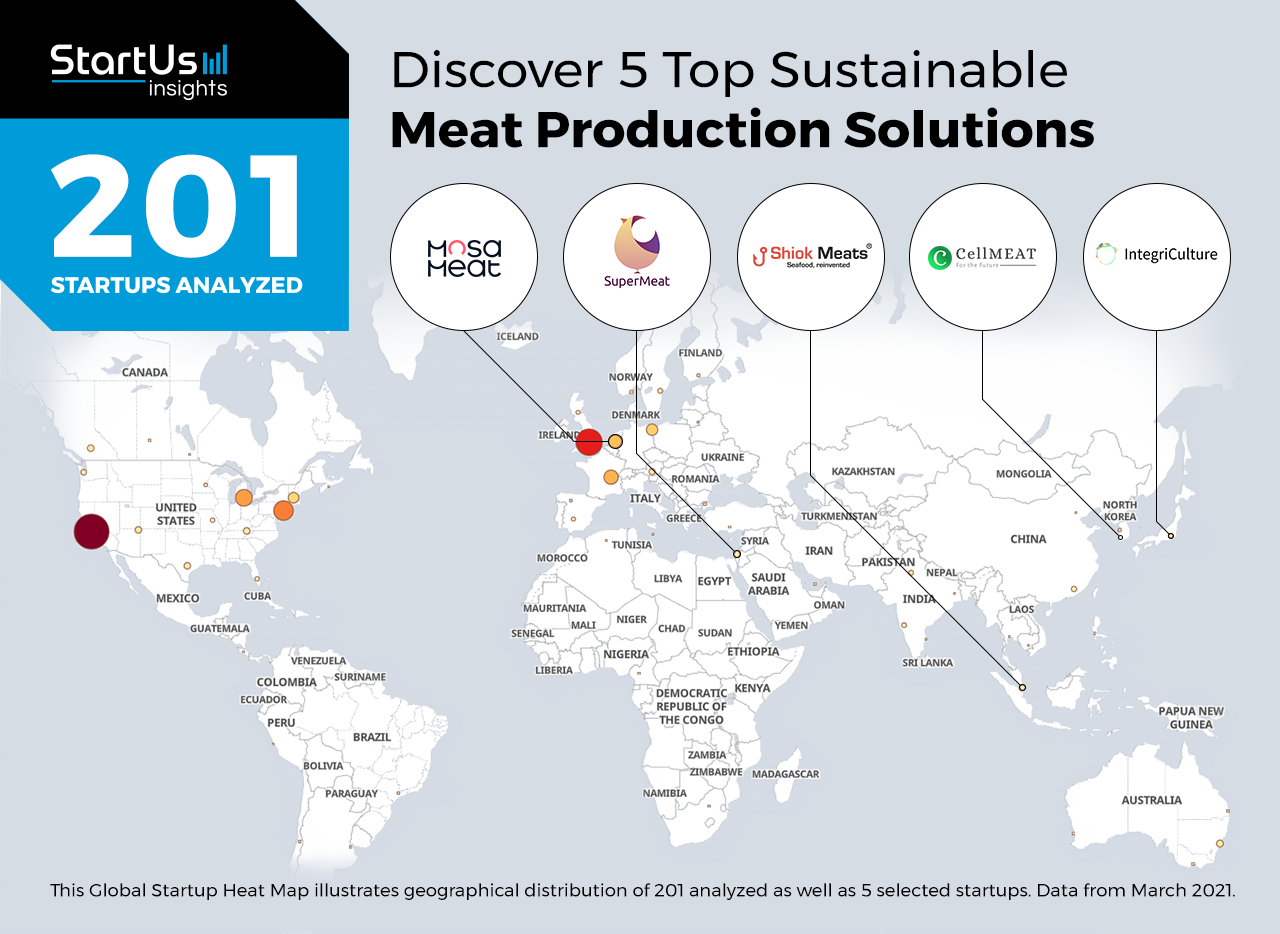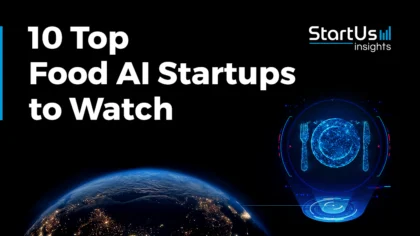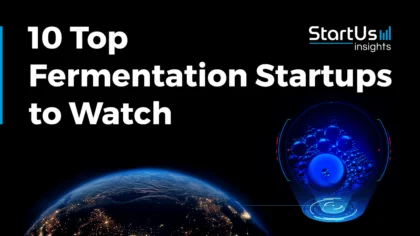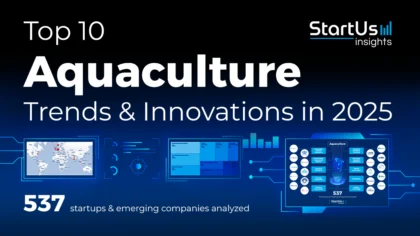Accelerate Productivity in 2025
Reignite Growth Despite the Global Slowdown
Staying ahead of the technology curve means strengthening your competitive advantage. That is why we give you data-driven innovation insights into the food industry. This time, you get to discover 5 hand-picked startups developing solutions for sustainable meat production.
Global Startup Heat Map highlights 5 Top Sustainable Meat Production Solutions out of 201
The insights of this data-driven analysis are derived from the Big Data & Artificial Intelligence-powered StartUs Insights Discovery Platform, covering 1.379.000+ startups & scaleups globally. The platform gives you an exhaustive overview of emerging technologies & relevant startups within a specific field in just a few clicks.
The Global Startup Heat Map below reveals the distribution of the 201 exemplary startups & scaleups we analyzed for this research. Further, it highlights 5 FoodTech startups that we hand-picked based on criteria such as founding year, location, funding raised, and more. You get to explore the solutions of these 5 startups & scaleups in this report. For insights on the other 196 sustainable meat production solutions, get in touch.
Shiok Meats produces Crustacean Cell-based Seafood
As global requirements for food production systems rise, they create intense pressure in industries such as fishing. This leads to many environmental challenges such as overfishing, ecological imbalance, and many more. That is why startups are creating sustainable and affordable solutions to provide cell-based seafood meat alternatives that have the same taste and texture as regular seafood.
Singapore-based startup Shiok Meats develops seafood meat that is grown from the cells of crustaceans. The company’s production process involves the selection of cells from shrimp and growing them in a nutrient-rich environment. The end result is seafood meat that is indistinguishable from traditionally sourced shrimp meat.
CellMeat creates Cultured Meat Products
One of the driving factors in the use of lab-grown or cultured meat is the greenhouse emission from the meat industry. As more animals are raised to meet food demands, it also leads to a subsequent rise in greenhouse gas emissions. Moreover, cattle and other animals require careful healthcare and nutrition monitoring which becomes more challenging as the scale increases. Startups and scaleups are developing cultured meat solutions that reduce the required resources compared to conventional animal meat.
South Korean startup Cell Meat specializes in developing cultured meat to replace the use of traditional meat in the food industry. Their cultured meat called GogiMEAT is grown from cells using an economically viable production method. The end-product has the same taste and texture as meat, therefore, aiming to become a cost-effective replacement for regular meat.
Mosa Meat develops Lab-Grown Beef
The raising of cattle for producing beef introduces a number of challenges such as dietary requirements, health and cleanliness monitoring, emission control, and more. The combination of these factors results in the meat production industry being one of the highest contributors to greenhouse gas emissions. To replace conventional meat, startups are developing methods to manufacture cultured meats using cost-effective scalable processes.
Netherlands-based startup Mosa Meat creates cultured beef using the same process that results in the growth of muscles in cows. Mosa Meat’s growing process uses cells from cows and nurtures them to become artificial beef. Mosa Meat’s process creates up to 80.000 burgers from a single sample of cells. The product is therefore a highly sustainable alternative for the beef industry.
Super Meat specializes in Cultured Chicken Meat Production
Poultry is one of the most popular and most consumed types of meat in the world with its demand closely correlating with the rising population. The modern meat industry is under pressure to maintain suitable environments to raise poultry and reduce their reliance on antibiotics. This is where the development of cultured chicken helps the poultry industry to reduce the amount of land, energy, water, and emission required.
Israeli startup Super Meat produces cultured chicken meat from cells that mature into muscle, fat, and other meat comprising tissues. The cells taken from the chicken are placed in a meat fermenter and provided with warmth, oxygen, and feed. This process stimulates the natural growth process in a chicken and results in a product that looks and tastes like natural chicken meat. The production process is designed to produce high yields and adaptable to the required supply chain demand.
Integriculture is a Commercial Manufacturer of Platforms for Cellular Agriculture
The meat industry is moving towards a transition of lab-grown meat over traditional meat. This is helped by the increasing consumer acceptance of artificial meat and the overuse of antibiotics in animal farms. One of the limiting factors in the adoption of lab-grown meat is the high technological cost associated with the production process. Startups are advancing cell culture to produce affordable and scalable platforms to create lab-grown consumer products.
Japanese startup Integriculture develops a unified cell agriculture platform called Uni-CulNet. The platform creates a cell growth environment that imitates the conditions inside of an animal during growth. The imitated environment removes the requirement of adding external growth factors which are typically associated with the high cost of cell culture development.
Discover more FoodTech Startups
FoodTech startups such as the examples highlighted in this report focus on bioprinting, personalized nutrition, robotics as well as artificial proteins. While all of these technologies play a major role in advancing the food industry, they only represent the tip of the iceberg. To explore more food technologies, simply get in touch to let us look into your areas of interest. For a more general overview, you can download our free Food Innovation Report to save your time and improve strategic decision-making.
